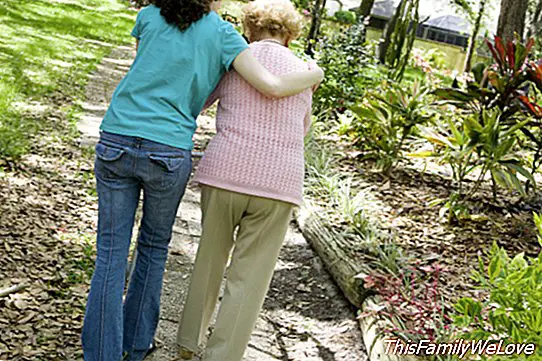The process of grieving the loss of a loved one
Grief is a process inherent in the human being, as natural as life and death. In the face of the loss of a loved one, there is intense discomfort, a psychic and affective maladjustment that requires time to return to balance and find meaning. This process that follows the imbalance is what is known as the grieving process. Grief is a painful process, probably the most painful one that people go through, but it is necessary to face the loss and continue with their own life.
The loss of a loved one
The loss of a loved one, either by death or a break, is one of the most painful situations that people go through. The loss not only implies the physical loss of the beloved person, it goes much further and involves a deep emotional and emotional loss. The loss involves several losses and the consequent emotional imbalance:
1. The loss of the loved one supposes to lose its affection.
2. The loss means losing dreams we had with the other person, common projects, plans to do, etc.
3. It means losing the security that the other person gave us, to feel loved by that person. Knowing what was for when we needed it and being aware that it will not be like this can create a sense of helplessness of insecurity and vulnerability.
4. The loss unbalances the affects that we felt, that we had deposited in the person. They are affections that are misplaced and that need to be relocated.
The loss involves a very intense psychic and emotional maladjustment, there are many emotions that appear: sadness, anger, frustration, fear, etc. and a readjustment is necessary that helps us to make sense of everything that happened and to relocate the affections that we deposited in the other person. Facing the loss does not imply forgetting the other person, if not learning to live without it.
The grieving process and its phases
The grieving process is a process of psychological readjustment that necessarily appears after the loss of a loved one. It is a painful process, but natural and necessary to face the loss and be able to move forward. The duration of the grief depends on each person and the personal experience of the loss, as well as the closeness with the person who has left and the characteristics of the loss.
What all mourning processes have in common are the phases of it:
1. Phase of Denial. At first a phase of denial, shock or stupor appears. The loss of the loved one seems something that may be happening to us, it can not be real and our mind tries to deny what happened so as not to experience pain. Automatic behaviors that try to deny reality appear, in this phase people can remain "apparently whole", as if nothing had happened. It takes a while to take the information received and understand that it is real.
2. Phase of anger, anger or aggression. When our mind can not deny or hide the reality of the loss, pain appears and the first reaction is anger. Anger is an emotion that appears when we perceive an attack, and the loss generates anger. It is true that anger can accompany the whole process of mourning, but in this phase it will be very intense, rage will alternate different objects on which to fall: the person who has left, on oneself, on other relatives, friends, and even about other people, doctors, etc.
3. Negotiation phase. In this phase the pain remains, but the anger is fading. The negotiation consists of looking for explanations to what happened, it can be accompanied by guilt, since in these explanations may appear thoughts of the type: "if there *." "I should have done * ..", etc.

4. Depression phase. It is one of the hardest phases, the person becomes aware of reality, away from denial, anger and explanations. They understand that in spite of denying it, of getting angry or looking for explanations, the person will never return and that generates a deep sadness and discomfort. Despair and frustration During this stage it is normal that the person is asile, have feelings of deep emptiness and intense pain, apathy and abandonment of the person and habits or hobbies. The depression generated by grief, is a depression that seeks solitude, if the loved one is not the person who suffers the loss does not want other affections, does not want other people than the loved one, and it may seem that even bother that Those people are and the dear person is not. It is a very hard phase, and it is usually the longest, but it is a necessary phase.
5. Acceptance Phase. Finally and little by little the acceptance appears. The person somehow begins to make sense of the loss, makes peace with his pain and begins to face the situation and to get ahead.
Grief is a long, painful and complicated process, after which the person is not the same again.The phases of the same are gradual, that is, they do not pass from one to another and often intermingle with each other.
Celia Rodríguez Ruiz. Clinical health psychologist. Specialist in pedagogy and child and youth psychology. Director of Educa and Learn. Author of the collection Stimulate Reading and Writing Processes.
It may interest you:
- Death of a loved one, how to overcome grief
- How to talk about death with a child
- Grief, how children face the loss of a loved one
- How to explain death to children




